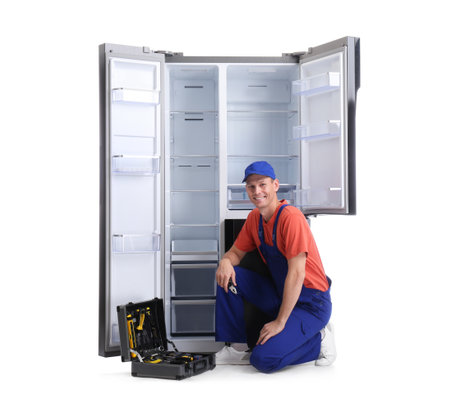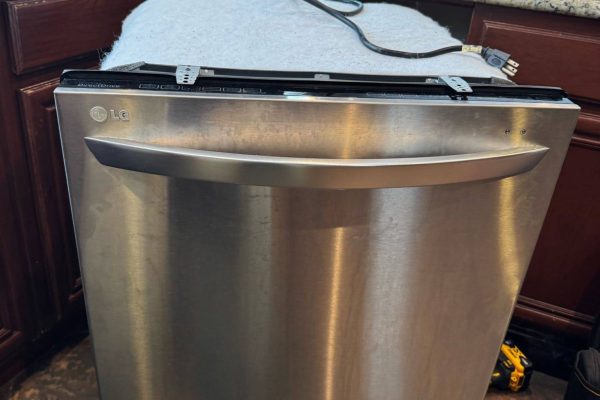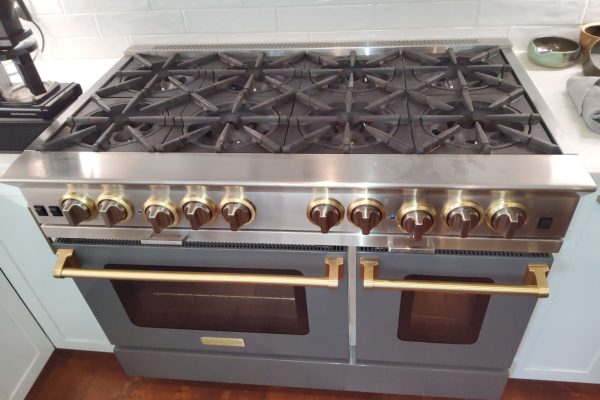The modern refrigerator is a marvel of engineering, designed not only to keep our food fresh but also to regulate humidity levels. However, when the humidity control system malfunctions, it can lead to issues like food spoilage and inefficiency. In this article, we’ll delve into the importance of refrigerator humidity control, common reasons for malfunctions, and steps to diagnose and rectify these problems.
The Significance of Refrigerator Humidity Control
Humidity control in a refrigerator plays a pivotal role in preserving the quality and shelf life of your groceries. Here’s why it matters:
Preservation of Freshness: Different types of foods require varying humidity levels. Fruits and vegetables, for example, thrive in high humidity, while low humidity is suitable for items like meats and cheeses. Proper humidity control helps maintain optimal conditions, preventing premature wilting or drying out of produce.
Preventing Condensation: Excess moisture inside the fridge can lead to condensation, which can be problematic. It can cause vegetables to rot, affect the crispness of fruits, and even lead to mold growth. The humidity control system helps maintain an environment where condensation is minimized.
Energy Efficiency: An efficient humidity control system contributes to the overall energy efficiency of your refrigerator. When the appliance operates at the correct humidity levels, it doesn’t have to work as hard to maintain the desired temperature.
Common Reasons for Humidity Control Malfunctions
Refrigerator humidity control malfunctions can stem from various causes:
Faulty Control Board: The control board or electronic control panel in modern refrigerators regulates humidity settings. A malfunction in this component can result in inaccurate humidity control.
Damaged Seals or Gaskets: Worn or damaged door seals or gaskets can allow warm, humid air to enter the refrigerator. This influx of moisture can disrupt the humidity balance inside.
Clogged Drainage System: In some refrigerators, excess moisture is drained away through a system that can get clogged over time. When this happens, it can lead to improper humidity levels.
Refrigerator Overloading: Overcrowding the refrigerator shelves can hinder air circulation, making it difficult for the appliance to regulate humidity effectively.
Temperature Fluctuations: Frequent fluctuations in temperature can impact humidity control. If the refrigerator temperature is too low or inconsistent, it can affect the humidity balance.
Diagnosing and Resolving Humidity Control Issues
If you suspect a humidity control issue in your refrigerator, here’s how to diagnose and address it:
Check the Control Panel: Start by reviewing the humidity control settings on your refrigerator’s control panel. Ensure that they are correctly adjusted based on the type of food stored. If your fridge has a separate humidity control drawer for fruits and vegetables, ensure it’s set appropriately.
Inspect Seals and Gaskets: Examine the door seals and gaskets for any visible damage, wear, or debris. Clean them with a mild detergent if needed. If you find significant damage, consider replacing the seals or gaskets to maintain a proper seal.
Clear the Drainage System: If your fridge has a drainage system, check it for clogs or blockages. Clear any obstructions to allow excess moisture to drain away as intended.
Avoid Overcrowding: Refrigerators need adequate air circulation to maintain proper humidity levels. Avoid overcrowding shelves, and ensure there’s space between items for air to flow freely.
Monitor Temperature Settings: Verify that your refrigerator is operating at the correct temperature. Temperature fluctuations can impact humidity control. Use a thermometer to ensure the fridge maintains the desired temperature consistently.
Inspect the Control Board: If you’ve checked all the above aspects and continue to experience humidity control issues, it may be time to consult a professional technician to inspect the control board or electronic control panel. Malfunctions in these components can require expert diagnosis and repair.
When to Seek Professional Help
While some humidity control issues can be resolved through basic troubleshooting, others may necessitate professional intervention. Here are situations in which it’s advisable to seek the expertise of a technician:
Control Board Malfunctions: If the control board or electronic control panel is malfunctioning, it’s best left to a professional to diagnose and replace.
Persistent Seal or Gasket Problems: If you’ve replaced seals or gaskets and the problem persists, it may indicate underlying issues with the door or hinge alignment, which should be addressed by a technician.
Complex Drainage System Blockages: If the drainage system is intricate and difficult to access, or if the blockage is severe, it’s wise to have a professional handle the repair.
Electrical or Electronic Problems: Humidity control issues related to electronic components should be examined by a technician with expertise in appliance electronics.
In conclusion, a malfunctioning humidity control system in your refrigerator can lead to food spoilage and energy inefficiency. Understanding the significance of humidity control, along with common causes of malfunctions and basic troubleshooting steps, can help you maintain the freshness and quality of your groceries. When in doubt, don’t hesitate to seek the assistance of a qualified technician to diagnose and rectify more complex issues, ensuring your refrigerator continues to operate at its best.
If you still did not manage to recognize the cause of this breakdown by all the points provided above, or if you do not want to waste time guessing, Oceanside Appliance Service Center is always happy to help you and provide a professional diagnosis and repair of your refrigerator in a timely manner.
Contact us


